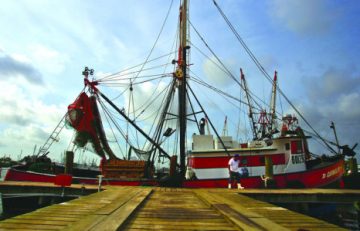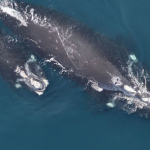Tag Archives: Trade
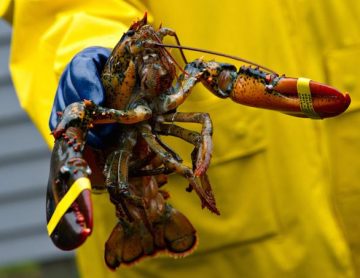
The secret life of lobster (trade): Could we be in hot water?
In a paper published in Frontiers in Marine Science, researchers, including lead author Joshua Stoll of the University of Maine School of Marine Sciences and the Mitchell Center for Sustainability Solutions, map the global trade routes for lobster and quantify the effect they have on obscuring the relation between those who catch the valuable crustacean and those who ultimately eat it. The team’s findings indicate that in today’s hyper-connected world, a growing number of nations are acting as “middlemen” in the supply chain. This makes it increasingly difficult to trace where seafood goes and difficult to anticipate changes in market demand. >click to read<10:30
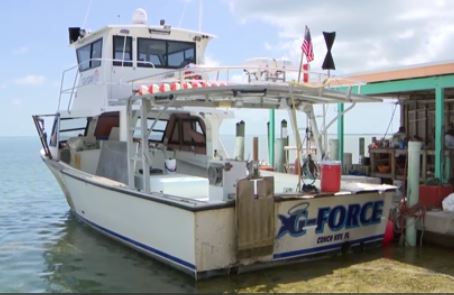
Florida Keys fishermen talk impact of President Trump’s tariffs
Jeff Cramer is a longtime Keys commercial fisherman who operates a fish house in Marathon. He buys lobster from as many as 20 different boat captains and then sells them all to his Chinese buyer. “I’m just hoping our president can resolve this little trade war he’s got going with Europe and China. A lot of us voted for him and maybe this will work out in the long run, but for the short term, it’s really going to devastate us after we had that hurricane last year. A lot of guys are living off the SBA loans that they have to start paying back in a little bit,” Cramer said. “Let’s see what happens. He got Rocket Man to back down, let’s see if he can get the Chinese president to back down,” Cramer added. Gary Nichols also voted for Trump and is standing by him. >click to read<11:44

DFO minister: No compromise on independence of inshore fishery
Canada’s Minister of Fisheries and Oceans says there will be no backtracking on measures to preserve the independence of Atlantic Canada’s inshore fishery.”I’m not interested in weakening or diluting these policies,” Dominic LeBlanc told CBC News in a wide-ranging interview Tuesday. LeBlanc was responding for the first time to overtures from lobster buyers and plant owners in southwestern Nova Scotia who have floated schemes that would allow the companies ownership of a fisherman’s catch while somehow maintaining the independence of the fisherman.,,LeBlanc declined to discuss the impact on Atlantic Canada’s seafood exports to the United States in the event the Trump administration pulls out of the North American Free Trade Agreement. >click here to read<21:29 
CETA: Canada-European Union pact worries US lobster industry
 Members of the U.S. seafood industry are fearful that Canada’s approval of a new trade deal with the European Union will cause big problems for the American lobster business, just as the catch is hitting historic highs. The Canada-European Union Comprehensive Economic and Trade Agreement Implementation Act, or CETA, cleared its final hurdle in the Parliament of Canada on Tuesday. The deal gets rid of tariffs on Canadian lobster exports to the 28-nation bloc, putting Canada at a huge advantage over the U.S. click here to read the story 11:06
Members of the U.S. seafood industry are fearful that Canada’s approval of a new trade deal with the European Union will cause big problems for the American lobster business, just as the catch is hitting historic highs. The Canada-European Union Comprehensive Economic and Trade Agreement Implementation Act, or CETA, cleared its final hurdle in the Parliament of Canada on Tuesday. The deal gets rid of tariffs on Canadian lobster exports to the 28-nation bloc, putting Canada at a huge advantage over the U.S. click here to read the story 11:06
Maine wants U.S. help to prevent lobster trade gap with Canada
 As a trade deal between the European Union and Canada nears completion, politicians in Maine want the federal government to find a way to prevent the U.S. from landing in a major trade disadvantage over a valuable, and tasty, resource — lobsters. The Canada-European Union deal would get rid of tariffs on Canadian lobster exports to the 28-nation bloc. That would give Canada a huge advantage over the United States in sending some coveted seafood products overseas. EU nations imported more than $150 million in lobster from America last year, and took more than $190 million Canadian (US$143 million) from Canada. The combination of a strong U.S. dollar and tariffs would make it hard to compete with Canada, American lobster exporters said. continue reading the story here 20:57
As a trade deal between the European Union and Canada nears completion, politicians in Maine want the federal government to find a way to prevent the U.S. from landing in a major trade disadvantage over a valuable, and tasty, resource — lobsters. The Canada-European Union deal would get rid of tariffs on Canadian lobster exports to the 28-nation bloc. That would give Canada a huge advantage over the United States in sending some coveted seafood products overseas. EU nations imported more than $150 million in lobster from America last year, and took more than $190 million Canadian (US$143 million) from Canada. The combination of a strong U.S. dollar and tariffs would make it hard to compete with Canada, American lobster exporters said. continue reading the story here 20:57
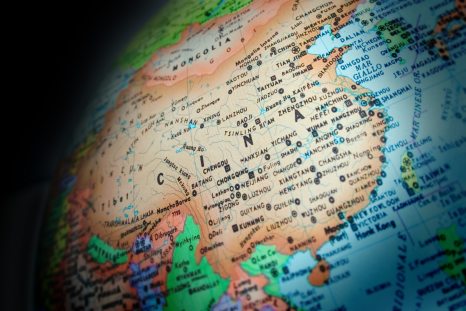
Caught In Alaska, Processed In China: Does Trump Make A Good Point?
When Donald J. Trump announced his candidacy in 2015 he created quite a stir with many of his statements. He spoke a great deal about securing borders, fixing the economy and especially the effects of China on the United States. Regardless of whether you agree with his plans and ideas of how to tackle these issues, you have to agree that these issues really do exist, especially the influence of China. The financial power of China overpowers not only American consumer good production, but also greatly affects the competitive of US fisheries. One of the major secrets to China’s fiscal strength is its over-abundance of very cheap labor. There is such a difference in labor between the US and China that it has greatly changed the way the US seafood industry works. Previously it was ideal to catch the fish in Alaska, fully process it in Alaska (i.e. filleting), and then ship it down to the mainland US where it would be consumed. Today it is just as common to catch the fish in Alaska, freeze it, ship it to China, process the seafood there, and then ship it to the mainland US for sale. This difference makes seafood producers millions of extra profits every year. This is common for all sorts of Alaskan seafood, including Alaskan Pollock, Pacific Cod, and especially Salmon. Read the article here 18:13






